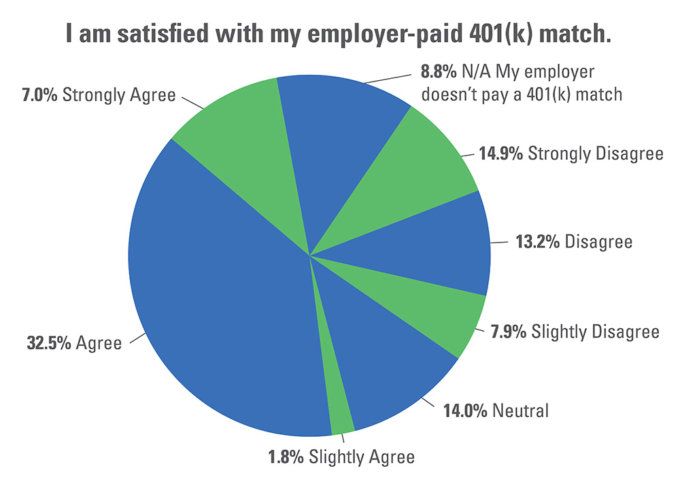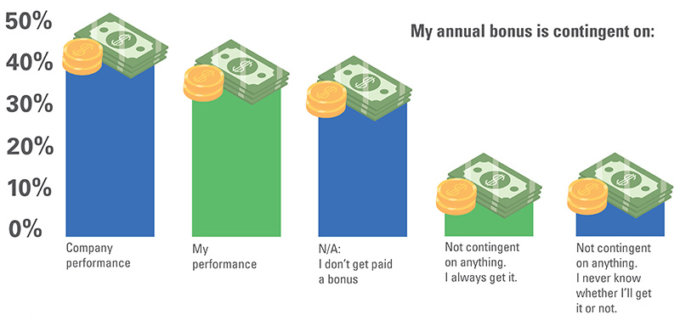A new approach to understanding the business aviation community’s perception of compensation is providing fresh insights that could strengthen how aviation departments reward and pay their employees.
NBAA’s annual Compensation Survey, first launched 35 years ago, is an indispensable tool for flight departments. Using data from hundreds of aviation operations and audited by accounting firm BDO USA, the survey offers a comprehensive analysis of salaries and benefits to inform business aviation leaders on best practices and how to be competitive in today’s challenging labor environment.
Stepping onto New Ground
The survey has evolved since its first edition to gain a greater understanding of the industry’s needs, such as enhancements in 2022 that evaluated diversity, equity and inclusion policies. But, like most compensation surveys, the study looks only at the objective parts of compensation and not how business aviation professionals feel about their compensation, said NBAA Business Aviation Management Committee member Christopher Broyhill, CAM, Ph.D.
“This survey takes the traditional approach and turns it on its head.”
Christopher Broyhill CAM, Ph.D., CEO AirComp Calculator
“I deal with the receiving end of compensation in my work, but there’s never been any data collection on what people think about their compensation,” explained Broyhill, founder and CEO of AirComp Calculator, which conducted the survey. “As a researcher, I’m always looking for a gap in knowledge, and this lack of understanding of what people thought about how they are compensated really drove my curiosity.
“Typically, compensation surveys examine quantitative data from the perspective of the entities paying compensation,” explained Broyhill, “so we decided to take a different approach and examine both the quantitative and qualitative data from the perspective of the people receiving compensation.
“This survey takes the traditional approach and turns it on its head. The typical compensation survey is unidirectional in considering what we are paying, but this never captures the perceptions of the people being paid. We really are stepping onto new ground here,” Broyhill noted.
Startling and Profound Insights
The first survey of its kind in business aviation surveyed 116 participants, 54% of whom were bosses and 46% who were non-bosses. About two-thirds of the respondents identify as pilots, while the remainder work in maintenance, scheduling and other parts of the industry. The participants were asked their opinions on various topics, including base salary, bonus structures, pension and medical benefits, and long-term incentives.

“When I talk with people about compensation, they tend to be very passionate about the way their compensation is packaged,” Broyhill said. “Some prefer bonuses and incentives, while others like to have everything included in the base salary. Either way, they are usually animated in their comments, regardless of whether they are positive or negative. However, what we found in this new survey was a neutral, almost dispassionate response to almost everything to do with compensation. And to be honest, I find that lukewarm response surprising.”
Potential Red Flag
Respondents were neutral on almost every metric, from the ratio of bonus to base salary, to 401(k) matches and medical benefits, to employer contributions. None of the questions, Broyhill noted, elicited strong emotions.

Broyhill is concerned that the responses belie a deeper issue. “You want your people to be thrilled with how you compensate them, so you want a better reaction from your employees than ambivalence. If your staff are neutral about their compensation, you may be looking at a broader concern with loyalty and engagement,” he said.
“I’m not saying we are about to witness a mass exodus from our industry,” continued Broyhill, “but retention at individual flight operations might potentially be under pressure. There could be several other reasons, too, and the sample size certainly could have impacted the results, but as an industry, we need to find out more about how our community views compensation before it becomes a problem.”

Aviation Directors Weigh In
A broader survey on the perceptions of compensation may also cast a different light on the issue. One aviation director for a California-based Part 91 operator noted that the timing and context of the initial study may have influenced the participants’ responses.

“At the same time, we constantly talk about strikes at the airlines and a boom in business aviation,” he said. “All of this is feeding into a narrative that there are better opportunities out there, which could fuel a fear of missing out rather than a general ambivalence.”
“There is a whole lot more to employment than just compensation.”
Flight director for a California-based Part 91 operator
A Midwestern aviation director said he believes a survey of employee perceptions would benefit from insights beyond compensation. “There is a whole lot more to employment than just compensation,” he said.
“While there are always ways to improve – and career development is one aspect we can work on – we should also appreciate that many business aviation professionals enjoy the stability and consistency their jobs provide,” he said.
Both aviation directors agreed that stability and consistency may influence an employee’s loyalty, engagement and satisfaction more than compensation, especially if the economic environment becomes more volatile.
“The aviation industry is cyclical and heavily impacted by outside economic influences, so while we are on the upward trend now, there is a certainty that will end,” said the Midwest-based director. “The business aviation community is resilient and resourceful and has proven it can accommodate economic hardship differently than other parts of the industry. I’d be interested to see how much that impacts an employee’s perception of their job.”
“Looking beyond the traditional metrics to consider the perceptions of managers and employees has been an important step in understanding compensation’s role in employee retention, satisfaction and engagement.”
Jo Damato CAM, NBAA Senior Vice President, Education, Training and Workforce Development
Deeper Understanding Needed
This initial employee perception survey has demonstrated a need for a deeper understanding of this topic, said Jo Damato, CAM, NBAA’s senior vice president, education, training and workforce development.
“The NBAA Compensation Survey is the premier source of competitive intelligence for pay and benefits for flight department pilots, managers and employees, and we constantly are seeking ways to improve the insights it provides,” said Damato.
“Looking beyond the traditional metrics to consider the perceptions of managers and employees has been an important step in understanding compensation’s role in employee retention, satisfaction and engagement. Now is the time to evaluate the survey’s findings and consider the best steps forward.”
Review all of NBAA’s workforce initiatives at nbaa.org/workforce.

Source: Aircomp Calculator



 International Business Aviation Council Ltd.
International Business Aviation Council Ltd.